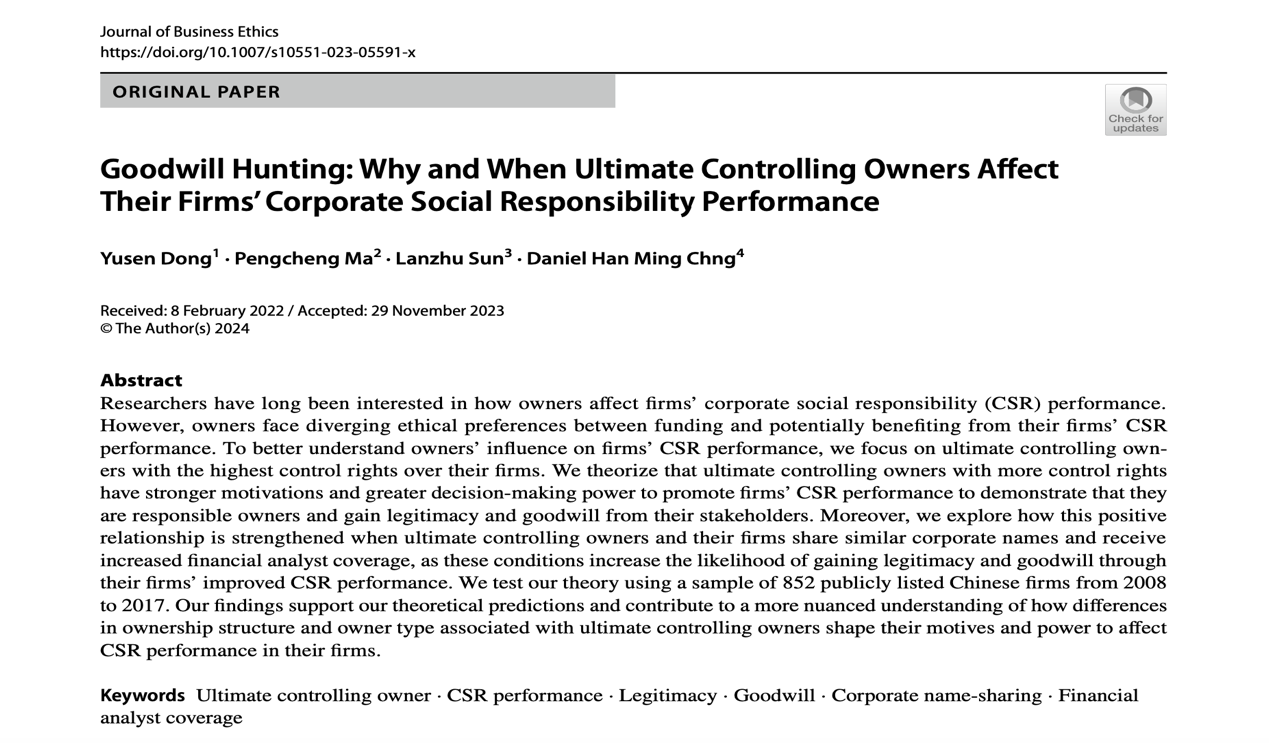
ABSTRACT
Researchers have long been interested in how owners affect firms’ corporate social responsibility (CSR) performance. However, owners face diverging ethical preferences between funding and potentially benefiting from their firms’ CSR performance. To better understand owners’ influence on firms’ CSR performance, we focus on ultimate controlling owners with the highest control rights over their firms. We theorize that ultimate controlling owners with more control rights have stronger motivations and greater decision-making power to promote firms’ CSR performance to demonstrate that they are responsible owners and gain legitimacy and goodwill from their stakeholders. Moreover, we explore how this positive relationship is strengthened when ultimate controlling owners and their firms share similar corporate names and receive increased financial analyst coverage, as these conditions increase the likelihood of gaining legitimacy and goodwill through their firms’ improved CSR performance. We test our theory using a sample of 852 publicly listed Chinese firms from 2008 to 2017. Our findings support our theoretical predictions and contribute to a more nuanced understanding of how differences in ownership structure and owner type associated with ultimate controlling owners shape their motives and power to affect CSR performance in their firms.
KEYWORDS
Ultimate controlling owner · CSR performance · Legitimacy · Goodwill · Corporate name-sharing · Financial analyst coverage
JCR CLASSIFICATION
Q1
Journal of Business Ethics
https://link.springer.com/article/10.1007/s10551-023-05591-x
